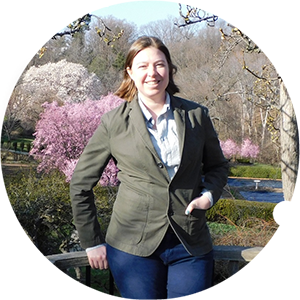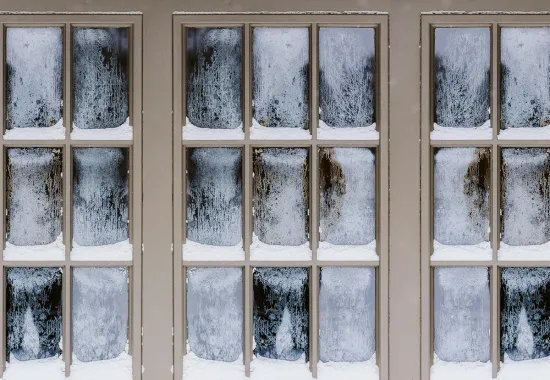Hollow Hills
Ever since Matthew had found the axe head in his father’s field, Maggie had considered him lucky. He’d shown her the axe head when she was walking down the road, carrying a basket of peats on her back. Clumps of peat clung to her hair, the muddy scent of peat was on her neck. He had placed the axe head in her hand, gently as if giving her an egg, cold and smooth and speckled. Tiny grooves serrated the blade where someone had carved it a long time ago.
•
Five years later, he asked her to marry him. He had inherited a croft from his uncle, it was his own now. It looked north to the sea where waves crashed white around tall sea stacks. She thought, then, of the axe head. People said the axes, which appeared like teeth in the newly tilled fields, would bring luck to a home, protect it from lightning, ward off the trowies who live inside hollow hills.
•
Her grandmother knit a lace wedding veil. Looped stitches, round like cockle shells, spread out and overlapped like waves. Her grandmother pulled the flowing veil easily through her own wedding band, and the fine lace narrowed to almost nothing, then billowed again. Soon it will be a christening shawl, her grandmother said.
•
On Maggie’s wedding day, her mother plaited Maggie’s curly hair and wove sea pinks through her braids. It was June. Bees circled the borage in the walled garden. Maggie pinned the flowers, blue and star-like, to her dress.
Wild yellow iris bloomed in the ditches along the road up to the church. At the edge of the field, angelica flowered like rising sea spume. Outside the church, her grandmother pinned the veil to Maggie’s hair and lowered it over her face. She imagined her features becoming blurred and bleached, anonymous as a statue. At night, they danced in her father’s field where sheep had eaten the grass flat.
When she and Matthew went home late at night, Matthew pried stones out of the lintel above the door. She held the axe head to her nose, and her breath fogged the cold stone, smooth as glass, maculate as a mackerel’s head. It smelled of damp fields. He took it from her and built it into the stones.
•
In spring, Matthew left on a whaling ship, sailing north. He was gone all summer, and she was alone in the croft house by the sea stacks. The June sun never set. In the north, just before midnight, it dipped below the horizon, twilight settled, and then the sun rose again. She mended the stone wall to keep the worst of the salt winds off carrots and turnips and swedes. On the pebble beach, she found a piece of washed-up timber and trained sweet peas to climb it.
•
By September, the night was as long as the day. By October, night came early. The swans came back from their arctic breeding grounds, honking and calling. Flocks branched across the grey sky, landed on the ponds with their feet outstretched, their wings settling and rattling like grain pouring into sacks in the barn.
•
When Matthew came home, his beard was long, his muscles were new, his clothes were frayed. At the dock, he lifted her and kissed her. He looked at her waistline, she could see him looking, but there was nothing to see. He kissed her again.
•
At home, he gave her the ear bone of a whale. It rested in her hand like a strange mushroom, porous like mushrooms that grew overnight in the fields. The ear bones survive the fires, he told her. She thought of those fires, of vats boiling along the shore: whale blubber becoming barrels of oil and filling the ship’s hold. It’s like a shell, he said—listen, and you’ll hear the sound of the sea. She held the bone to her ear. Down there under miles of sea, under the weight of water, it had heard the sound of other whales. But the bone didn’t sound like the sea. Waves broke and retreated, rhythmic pulse. Against her ear, now, there was a faint roar that didn’t end.
•
The December sun rose briefly above the horizon, then slipped back down into the sea. The winds roared in, scouring the grass, flattening the bog cotton. At Yule, it was dark by three o’clock. Every night, there was dancing in a different barn. Her brother and Matthew butchered a cow, and she brined the head. On the first holy night, she cooked the head, laid it out with sprigs of holly from the scraggly, stunted tree in her walled garden. The meat was more tender than ordinary beef, more delicate, easier to eat.
All week, they boiled the skull clean. At last it sat on the table, smooth and bright. Matthew carried the cow skull, a lit candle balanced in its eye socket, out to the barn to guard the animals from trowies. Maggie didn’t believe in trowies, or if there were trowies, she didn’t believe they were interested in barn animals, or in humans: she had never seen a trowie, never seen their tracks, never heard muffled fiddle music rising up out of the ground. Trowies lured fiddlers into hollow hills, poured them heather wine, until they stumbled out into the daylight where a hundred years had passed. But she had never seen someone in old-fashioned clothes wandering down the road, looking for people he’d known a long time ago. Still, she liked watching the candle gutter in the barn.
•
Every night, during that week of longest nights, they went to the dances. The men were all home, and they were loud and reckless from months on cold arctic water, sailing between icebergs that could close like a vice. She danced the line dances, and men swept her off her feet, squeezed her waist, laughed. They spun her and spun her again. Fiddle music rose to a frenzy. She was dizzy. She wanted the cold night air. She was sure she would be sick.
Men said that when they strayed just close enough to a crevice in the rocks on a dark night, they heard trowie reels, glimpsed lights, but fled before the trowies took any notice. They remembered the tunes and brought them home. She moved to a bench by the door. The door was ajar, and cold air blew in. The room was hot and smelled of too many bodies.
Matthew sat drinking by the fiddlers. He wouldn’t let her go, if she told him she was leaving: he was superstitious about trowies, believed that now, in these shortest days, they emerged from the earth and roamed above ground. And now that he was home, he never wanted to be alone, always wanted her close. When she looked up, he was always looking at her, watching her. She retrieved her coat from the pile by the door and slipped out. The wind was cold on her face, but, through the sheepskin coat, she felt nothing. She put her hands in her pockets. She liked walking alone in the dark. The air was cold and clear. She lay down on springy heather and waited for her head to stop spinning.
•
By the time she reached the road, light from the barn was gone, and it was so dark she couldn’t see anything at all. She kept walking. The road was straight until it turned down towards the sea stacks, and the darkness was so thick she felt almost protected, entirely invisible. She crested the hill. In the fields below, light poured out of barns and houses, separating the dark of the fields from the dark of the sea.
A long time ago, a bridegroom stumbled on a skull as he left the church after his wedding, Matthew told her. Later that night, a man called him away from the wedding dance, asked if he’d walk with him up into the hills. They came to a small house with a fire and two chairs. The man asked him to stay just until the candle burned down. They raised their glasses. The guttering flame left a long beard of wax as it burned, then the bridegroom walked home, out into the bright day, down through the fields, past the swans on the loch. When he arrived home, the house was full of children, and an old woman sat by the fire. She had once been married a long time ago, but her husband left after the wedding and never came back. He was a little like the man she’d married, she’d said. But she had a different husband now, children, and grandchildren.
Why would any man leave his new wife for a strange man, Matthew had asked, and he’d laughed as though the man deserved what happened. But Maggie remembered waiting for her wedding, those months when she knew it would happen. Those months were something that would end and had not yet ended. They were quiet and calm.
As she walked down towards the sea, the wind became stronger. Clouds began to part, and stars appeared, bright stars, and tracts of tiny stars, swathes of light, translucent like seaweed. Inside, she knelt and prodded the peats until the embers stirred, expanded, flared.
She lifted the cow’s skull and set it down by the hearth, lit the candle in it. Like water, shadows lapped the bone. The skull had boiled for days, it was clean, but still she was afraid to touch it. She stroked the snout, ran her knuckle along the teeth. Under her hand, it was cold. She could feel, in her hand, the quietness of the animals in the barn when they held still, let her milk them, let her stroke them. She imagined a baby born in a draughty barn. When she was a child, her uncle’s boat capsized in a squall, and when they brought him home, blue at the mouth, unconscious, half dead, her mother laid him naked against a cow, bound his body to the cow with rope. Slowly, he became warm again. She imagined a baby in the shelter of a cow’s bulk, the sheep crowding close to look at him, the acrid scent of damp wool.
All week Matthew had asked how she felt, but she knew what he was really asking. He was afraid there would be no child if there was no child yet. She, too, was waiting. She had been expecting this child all her life. All summer, she had been alone. When she came home from the fields at night, exhausted, she lay down on the quiet bed. The sound of the waves rose and retreated. A pink moon hung above the arched sea stack in the sky that was still light. She would get up again, climb the hills alone, look down at bog cotton, sea pinks, and buttercups. In the sea, the rock arch rose like a small ring. A plover, called, whinnying cry like the sound of a horse. In those quiet months, she was relieved there was no child yet.
She understood waiting. Just until a candle burns down. A glass of whiskey. A quiet room. A stranger to whom nothing is yet owed. She thought about that span of time when everything is assured and nothing has yet happened. Waiting seemed harmless then. Waiting would bring longer days, thawing fields, clear light in the morning.
Very carefully, she lifted the skull. The candle flared and steadied as she stepped outside. She shielded the flame with her hand. The night was cold and clear.
Suddenly, the sky turned orange like fire. Fingers of light plunged down into the sea. Green light jagged across the sky like lightning, wild and fast. It snaked to the horizon. It forked through the darkness like surf fraying down rocks. Swathes of light rose and fell. She walked out into the tall grass and stared up at the northern lights. The sky seemed to have opened above her.
Note: the Shetland folktale about the trowie and the bridegroom is collected in The Foy and Other Folktales by Lawrence Tulloch.
Recommended
The Monstera
The Wild Women of Brigantine
The Salamander






